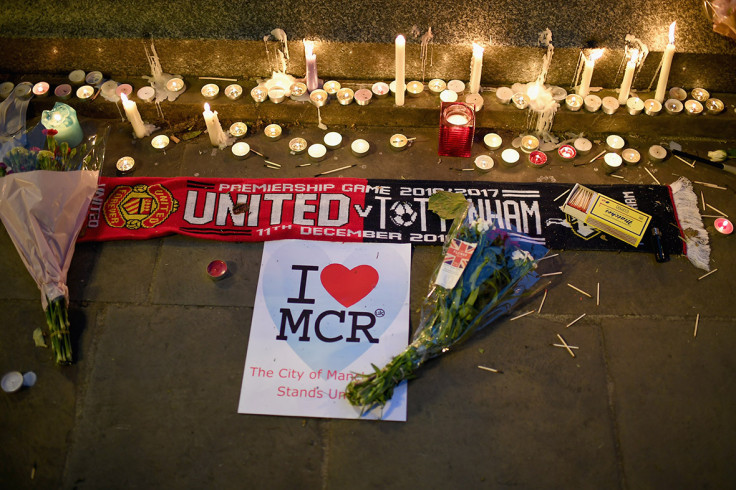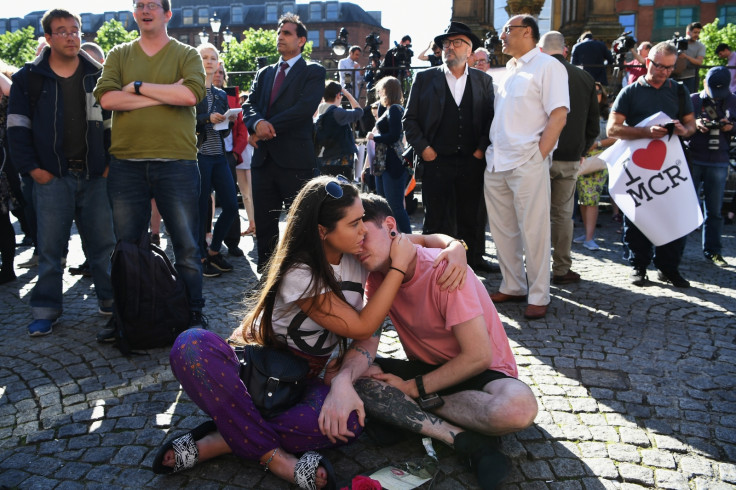How the media's harassment of terrorist attack victims makes their trauma worse
The loss of innocent lives is deeply traumatic - and the media can easily get their coverage wrong.

A suicide bombing at an Ariana Grande concert in Manchester has claimed at least 22 lives and injured dozens more, many of them children and young people.
Exactly one month after a terrorist killed five people in Westminster, we find ourselves mourning the loss of innocent people - and wondering how a community copes with the aftermath of such a traumatic event.
It is understandable for survivors and witnesses of suicide attacks, car rammings and mass shootings to find themselves struggling with symptoms of anxiety, stress, depression and even post traumatic stress disorder.
But a Twitter user has highlighted another key issue - how journalists' behaviour following a terrorist attack can impact a survivor's wellbeing.
"When I was caught up in a terrorist incident 4yrs ago, the behaviour of the UK media made the trauma much worse. They don't seem to have changed," one person wrote. The tweet has resonated with social media users and been shared more than 10,000 times.
"I grew up in Manchester. It's strong. People will come together and support. In contrast, behaviour of some media today is deeply concerning," they tweeted.
The user then goes on to list the ways journalists attempted to get a "story" after the incident, which include being doorstepped, calling their work, calling a mental health helpline the user worked on and calling family and friends, including elderly relatives living abroad.
Hostile interviews
This kind of behaviour is deeply traumatic for someone who has already lived through - or witnessed - a near-death experience. And unsurprisingly, it can be extremely detrimental to their mental wellbeing.
And this isn't a one off experience. In response, another person tweeted a similar experience after the 7/7 bombings in London in 2005. "Journalists were pretending to be members of my family and managed to get the number of my bedside phone," the person tweeted.
Neil Greenberg, a professor of defence mental health at King's College London, says the issue of people being subject to hostile or unintentionally helpful interviews is a problem after traumatic events.
"For instance in relation to Manchester, one interviewer spoke with a person who was passing by at the time and the interviewer asked 'so did you go and offer help to the injured' – the interviewee had not and one wonders if they now felt guilty (a PTSD symptom) directly because of that question," Greenberg says.
"I think that hostile interviewers are more likely to cause adjustment disorder/depression/anger symptoms than frank PTSD, mind you."

Sensitive questions
This isn't to say that victims and survivors can't cope with questions asked sensitively by the media, in order to show the whole picture of an event - if they agree to do so.
"Most people will handle sensitively-asked questions by media professionals well," Greenberg explains.
"There is evidence that people who are distressed already may well become more symptomatic when they watch traumatic scenes repeatedly on the TV. As such I am convinced that people who are hounded to provide details of what happened to them or of what they saw – especially if they have not volunteered to speak to the person."
Therefore, he adds, it is important that media who speak to potentially traumatised people should seek training about how to carry out these interviews.
Graphic images
Today's mass media can turn a local disaster into international news in minutes. But certain violent images of the aftermath of a terrorist attack broadcasted by news outlets can also impact not only victims, but also their family members, loved ones and the general public.
While it is key to tell as story as it is, it's also crucial to monitor which images will be published - and the impact they could have on someone. Something as seemingly innocuous as a shoe, or an item of clothing, can identify a victim even if their face isn't shown - which can be extremely traumatic if the image is of a body.
According to research published in 2012 by scientist Roxane Cohen Silver of the University of California, Irvine, repeated exposure to vivid traumatic images in the media can have long-lasting negative consequences on a person's mental and physical health.
"When we consider that graphic images of individuals being overcome by the 2011 tsunami in Japan were shown repeatedly, that a vigorous debate occurred last year regarding the release of the gruesome death photos of Osama bin Laden, and that vivid and disturbing images of 9/11 will likely appear on our television screens marking the anniversary of the attacks, we believe that our paper has something important to say regarding the impact of repeated exposure to graphic traumatic images," Silver wrote in a paper published by the Association for Psychological Science.
Therefore, she argues, it is crucial that the media is aware of how they report terrorist attacks - and to think twice before publishing graphic and disturbing images.
© Copyright IBTimes 2025. All rights reserved.




















